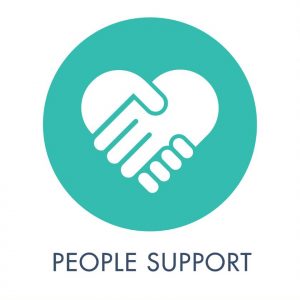
You might be excited about the thought of sitting at your desk in the office, or you may have concerns about what it will be like after a few or many months of “Working From Home”. Is there a worry about catching COVID-19 in the workplace? 44% of employees agreed they felt anxious about returning to their workplace because of Covid-19. However, being well prepared mentally for a new routine will support your wellbeing and foster a positive mindset and outlook to help you embrace the new ways of working which lie ahead.
Here are some hints and tips to help you think about and prepare for the transition and they focus on using positive emotions to support you:

Adaptability
It is very likely that the office environment won’t be exactly as you remember and adjustments may be in place to ensure that everyone’s safety is considered. This might include extra cleaning of desk equipment, one-way systems, requirements for mask-wearing, different arrangements in shared kitchen spaces, temperature taking or testing procedures, and other measures which may feel unfamiliar to you at work. This is to help reduce the spread of the virus and ease any concerns about catching COVID-19 in the workplace.
The key is adaptability. If you can be open-minded about arrangements, accept that there are new ways of working, and respond with the flexibility you will be a champion of change in the office. Your positive outlook will generate goodwill and cooperation in others and you will be at the heart of a winning team!
Routine

Whilst you have been working from home you may have noticed the benefits of creating a good daily routine for yourself in order to stay on track with work and have a good work/life balance. Take those good habits with you to the office – have drinks to keep you hydrated which will help with concentration, take regular breaks, get up and move around (stretch, take a short walk, go outside and take time to breathe, notice what is going on around you and be “present”), set yourself realistic and achievable “to-do lists” and targets, leave work behind at the end of each day and return refreshed and ready to go again the next day.
The importance of a routine is that it gives us control. Staying in control of how we feel means we stay calm in stressful situations and keep productive. You can make considered decisions and bring a composed, reliable and calm presence to the team. By keeping to a routine you can be the person on the team who is well-organised, level-headed, and resilient!

Empathy
In the past year of lockdowns we have witnessed and maybe experienced many acts of kindness in our personal lives. Kindness towards each other is as important in the workplace as it is in our home life. Being in the office again is an opportunity for us to be together, “be human” and to show our appreciation to each other. Our kindness can be finding ways to “look out for each other” during this period of transition and change of routine to make sure that everyone can thrive in the team.
For example, if somebody is anxious about catching COVID-19 in the workplace, listen to their concerns, empathise with their worries and suggest ways in which they can better protect themselves, even if that means bringing their own hand sanitiser to the office.
With 87% of UK employees using at least one coping strategy to deal with the pandemic, kindness and empathy go a really long way. Empathy comes from expressing the emotion of empathy. Empathy is equally beneficial for the giver and the receiver and helps us look after our own wellbeing as well as the wellbeing of our colleagues.
Empathy is a skill set that includes paying attention to and listening to others, connecting to other people and being curious – showing an interest in other people and seeking to understand. After many months away from the office, there are lots of experiences and insights to share with each other. Coming back together as a team will need time to understand how the past lockdowns affected us all. By taking time to listen and understand each other’s stories is an opportunity to build the skills of empathy. Team members who are good at this are often the “glue” that holds a winning team together!
Adaptability, self-control and empathy are some of the competencies that make up our Emotional Intelligence. The hallmark of high-performing leaders and excellent team players is their ability to tap into their emotional intelligence to manage their own wellbeing and to create a positive environment for the wellbeing of the whole team.
If you would like guidance and support during this time, please contact us here.
 Written by,
Written by,
Executive Coach at SYLO | Beyond HR.